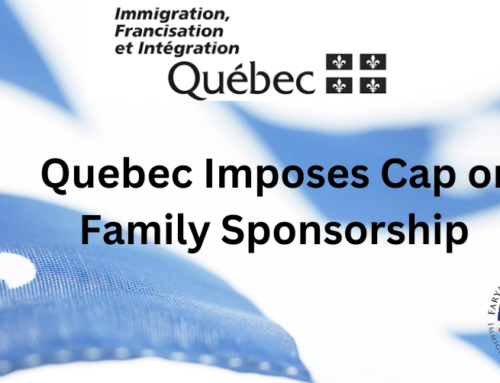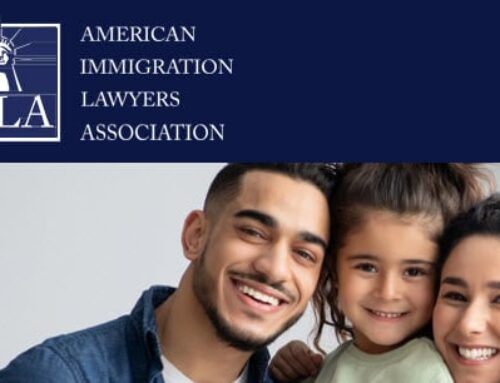How to submit your Parents and Grandparents Program 2022 Immigration Application
On October 11, 2022, Immigration, Refugees, Citizenship Canada (IRCC) announced that it has begun sending out invitations to apply to potential sponsors for its 2022 Parents and Grandparents (PGP) lottery. A total of 23,100 Canadians will receive an invitation to apply (ITA) this year and from these, 15,000 applications will be accepted.
Similar to the 2021 PGP intake, due to the influx of interest to sponsor forms remaining in the pool of submissions from 2020, for the 2022 PGP intake, IRCC will send ITA’s to randomly selected potential sponsors from the pool of 155,313 remaining potential sponsors who submitted an interest to sponsor form in 2020. Applicants who submitted an interest to sponsor form in 2020, but who did not receive an ITA in January 2021 or September 2021, will be emailed using the email address on their 2020 interest to sponsor form.
Targets for the PGP will rise to 28,500 in 2023, followed by 34,000 in 2024, and 36,000 in 2025 according to the newly released immigration targets. For the 2022 Parents and Grandparents Program (PGP), 15,000 will be selected.
As a reminder, the pool of potential sponsors from which ITAs were issued for this year’s program is the 155,313 remaining sponsorship hopefuls who submitted an interest to sponsor form in the 2020 PGP.
How to Apply
If you receive an ITA for this year’s PGP, you application submissions must be completed electronically through the new Permanent Residence Portal or the Representative Permanent Residence Portal in order to modernize the immigration processing system, streamline, fast-track and reduce backlogs. There are two applications, first you must apply to become a sponsor and second your parents and grandparents must apply for permanent residence. Both the sponsorship and the permanent residence applications online at the same time.
IRCC stresses that you should only apply for the PGP if you were invited to do so. Applications submitted without an ITA will be returned.
Lowered Income Requirements for Sponsors
IRCC will continue to use a lower income requirement for the sponsorship of parents and grandparents. Due to the recent pandemic many potential sponsors experienced financial difficulties and are not earning the same as they had previously. For the 2020 and 2021 tax years, the income requirement for sponsors will not be the “minimum necessary income plus 30%”, instead, it will only be the minimum necessary income. In addition, sponsors will be able to include regular Employment Insurance benefits and temporary COVID-19 benefits (such as the Canada Emergency Response Benefit) towards their overall income. These measures are in place to ensure that sponsors and applicants are not prejudiced or unfairly penalized for a temporary loss of a sponsor’s income during the pandemic.
Super Visa as Alternative
For those who did not receive an ITA this year, there is still the Super Visa available for those who wish to reunite with their parents and grandparents in Canada. The difference
The Super Visa was introduced on December 1, 2011, to promote family reunification and facilitate stays of longer duration. It is the most accessible option for Canadian citizens and permanent residents to reunite with their parents and grandparents in Canada for multiple entries (valid for 10 years) and longer-term stays.
Enhancements to the super visa were made effective on July 4, 2022. Some of these changes include:
- increase the length of stay for super visa holders to 5 years per entry into Canada
- People who have a super visa also have the option to request to extend their stay by up to 2 years at a time while in Canada.
- accept medical insurance coverage from international medical insurance companies for super visa applicants in the future
- Currently, only Canadian insurance providers can provide the necessary medical coverage that super visa applicants are required to have. Information about any designated medical insurance companies located outside of Canada will be communicated on IRCC’s website at a later date.
In order to receive a Super Visa, the applicant must meet the requirements for a temporary resident visa (TRV) as well as the following eligibility criteria:
- Have undergone a medical examination and be admissible on health grounds;
- Have provided satisfactory evidence of private medical insurance from:
- a Canadian company, or,
- a company outside of Canada, which has been designated by the Minister of Citizenship and Immigration as providing private medical insurance that can be presented for the purpose of obtaining a Super Visa; and,
- Have provided satisfactory evidence of financial support from the host child or grandchild for the duration of their requested stay.
The requirement for a medical examination and proof of private health insurance from an approved insurance provider was set in place so super visa holders can receive emergency health care while they are in Canada, while ensuring that the cost of those services does not fall upon Canadian taxpayers.
If you have any other questions regarding the PGP, please contact us.




